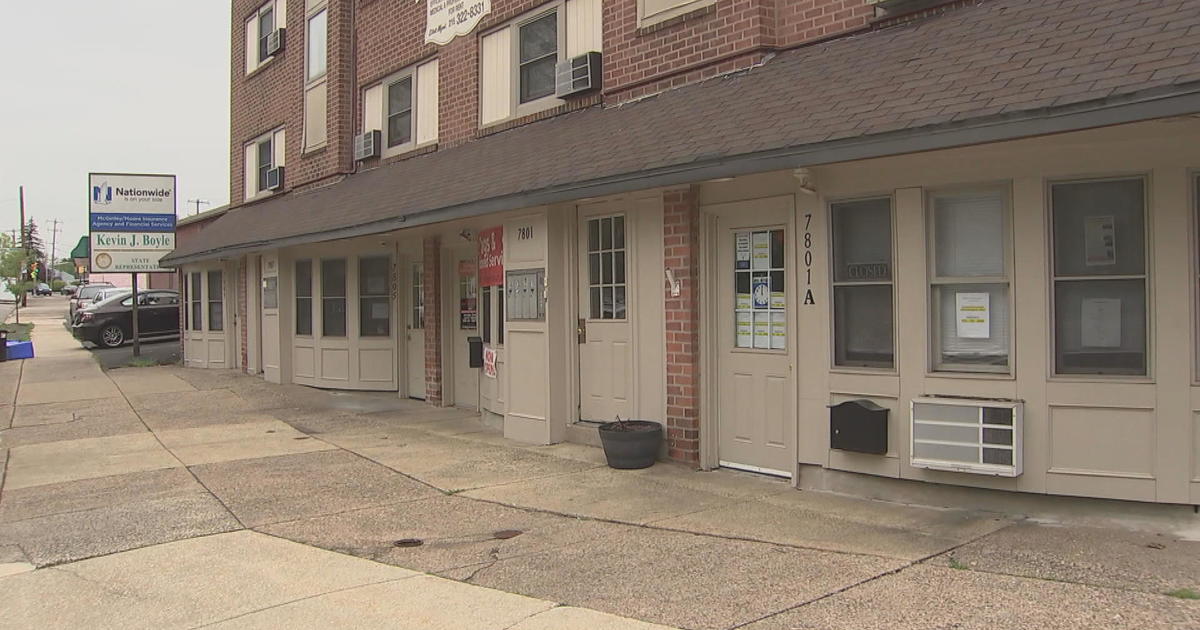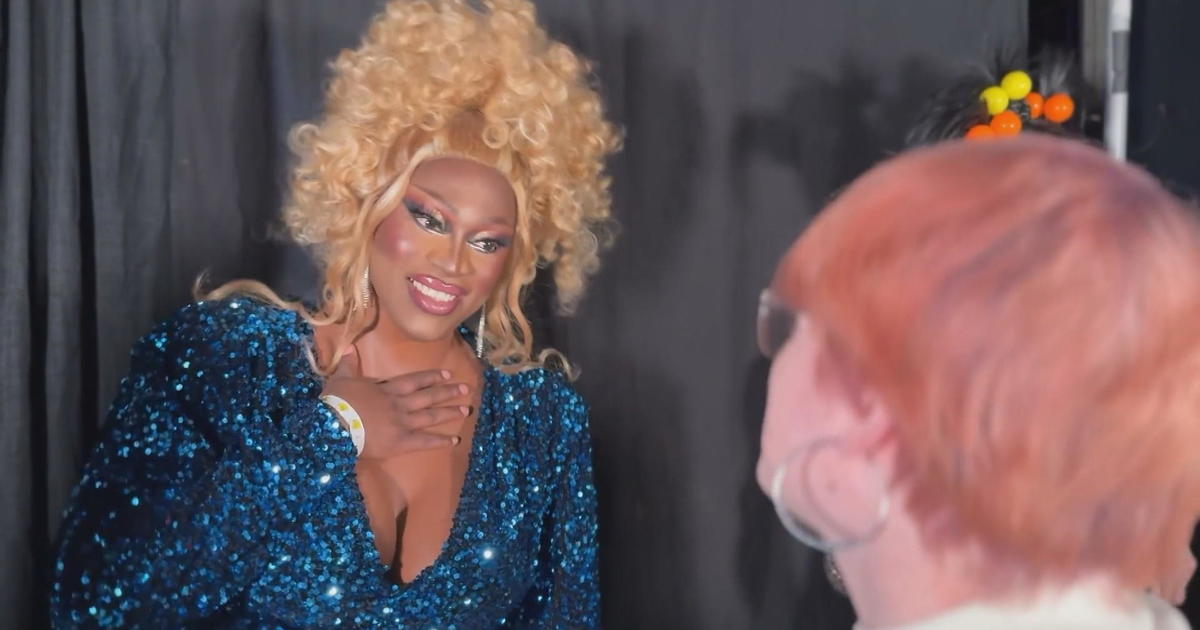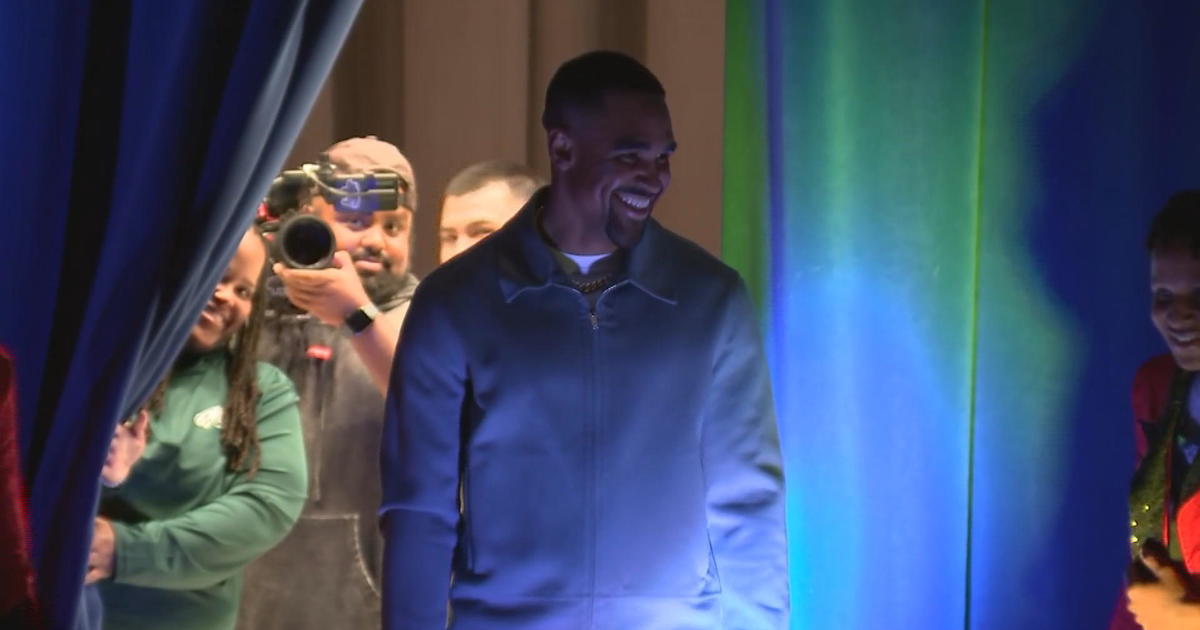OIF Veteran From Philadelphia Speaks On War In Iraq, 9/11
PHILADELPHIA (CBS) - When Frank McGovern received notice in February 2003 that he was being deployed to Iraq, he didn't ask questions - he wanted to fight for his country.
"If the country asks us to do something, that's what we're there to do," said McGovern, a Staff Judge Advocate at Joint Force Headquarters in Annville, Pennsylvania.
"I don't think most of the soldiers get into the politics of the country. We're there to serve and assist."
On September 11, 2001, McGovern was based at Fort McPherson in Georgia when he learned of the attacks on the World Trade Center. Everyone in the office dropped what they were doing and ran to the television. It seemed surreal. "How could a plane crash into the World Trade Center," he asked himself.
When the second plane struck the south tower, McGovern and the rest of the military officials in the office realized it was not an accident. He remembers wanting to do something, but from where he was based at the time, there was nothing that could be done.
"We just wondered if it was an act of terrorism. At some point the military would get involved."
And they did. McGovern would be one of the thousands of servicemen and women to deploy to Iraq in March 2003 as part of the war on terror. Like many others, not knowing what could happen in the country at any given moment concerned him. McGovern recalled getting off the plane in Kuwait. The officer and 50 to 60 other soldiers got on a bus before heading to their holding area.
Even though the bus was filled to capacity and each soldier had heavy gear on, McGovern described, "you could still hear a pin drop." Everyone was on the edge of their seats knowing chemical explosives could go off at any second.
"It was like going into the great unknown. We were trained for it, but you get into the situation and it's the real deal."
On the very first night, McGovern was told to put on a chemical suit and a protective mask. Every day for the first month in Kuwait, they were drilled on wearing their protective gear.
"Our concern was that we were doing what we were taught and trained because if there were chemical weapons, you want to make sure you're not dying because you didn't put your gas mask on right," said McGovern. It was about survival, but moreover, it was about helping the Iraqi people and setting them free from a brutal dictator.
MULTIMEDIA
The days that followed would be a living testament to why American soldiers needed to be in Iraq.
According to McGovern, some of the Iraqi people, specifically the Shiites, treated them like "rock stars". They looked up to them. He remembers children running up to soldiers and surrounding their units, asking questions about their gear, simply elated to have this new, unfamiliar troop in their area. These children were living in extreme poverty, but they were so happy, the way children should be, McGovern remembered.
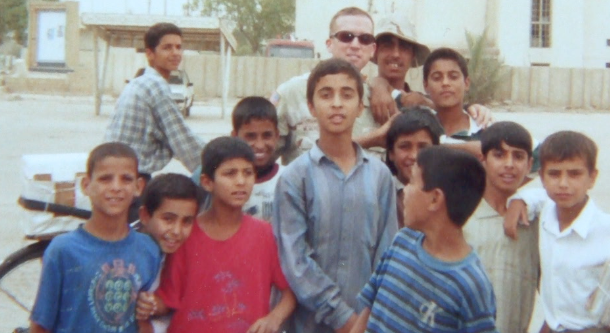 "In my personal opinion, it starts with the kids. It's tough to come to a country and tell a 40 or 50-year-old everything you're doing in life, your sort of doing it the wrong way. But seeing the kids get to interact with us, and learn our values and how we treat people, that could make a difference over a long term," McGovern said.
"In my personal opinion, it starts with the kids. It's tough to come to a country and tell a 40 or 50-year-old everything you're doing in life, your sort of doing it the wrong way. But seeing the kids get to interact with us, and learn our values and how we treat people, that could make a difference over a long term," McGovern said.
"We were always there for the Iraqi people, to help them have a better life."
It was an eye-opener for McGovern, to see the mass graves of Iraqi citizens that had been dug up. There were thousands of bones that belonged to people who McGovern says were slaughtered or buried alive by Saddam Hussein and his men.
"You would hear these stories of family members who just disappeared - you just know that you are definitely helping the people out through a better life because Saddam was a brutal dictator."
On the day Saddam Hussein was captured, McGovern was in Tikrit at the time, but was very relieved and happy just like many of the Iraqis, but knew the war against terrorism was far from over. He remembered seeing the Iraqi people reveling in the streets; one chapter in their life had finished.
The mission didn't stop there, however. The goal to ensure the Iraqi government was stable and to provide the people with the necessary resources was still in full force, in addition to making sure those loyal to Saddam Hussein didn't disrupt the process, McGovern said.
"We had groups working at courthouses, schools, hospitals, trying to get those systems up and running. A lot of people think we are a stabilizing force in the country, to help keep different factions together."
McGovern says he remembers several parents asking him how they could get their own children to come to the United States for an education. The Iraqi people appreciated Americans and wanted to be one; not everyone shared Saddam Hussein's ideology.
That, he says, is what he took most from his trip to Iraq.
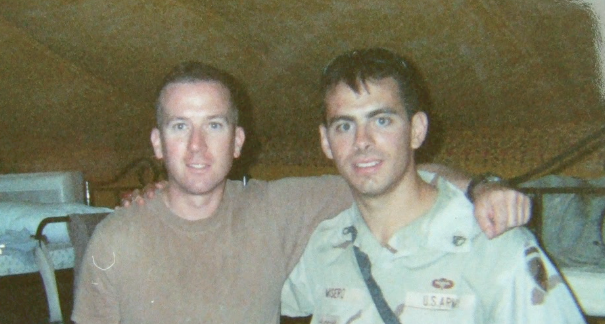 "We lost 6,000 service members since (the war started), tens of thousands wounded, warriors come back with problems, lost limbs or post traumatic stress disorder. But I don' t believe everyone's effort was for naught," McGovern said.
"We lost 6,000 service members since (the war started), tens of thousands wounded, warriors come back with problems, lost limbs or post traumatic stress disorder. But I don' t believe everyone's effort was for naught," McGovern said.
"For our generation, people are going to remember 9/11. When 3000 people are killed on our own soil, Americans aren't used to that. Going to Iraq and Afghanistan was all part of this terrorism that has taken route in the world," McGovern stated.
"This isn't something we could put a time marker on. We're facing individuals and an ideology and it's going to take time. Those serving in uniform today are unique from previous conflicts because the 9/11 generation that is serving are all volunteers. Everyone has volunteered to serve," he said.
"I hope that we can continue to be the greatest country in the world and be the country that everyone wants to come too."
Reported by Crystal Cranmore, CBSPhilly.com
